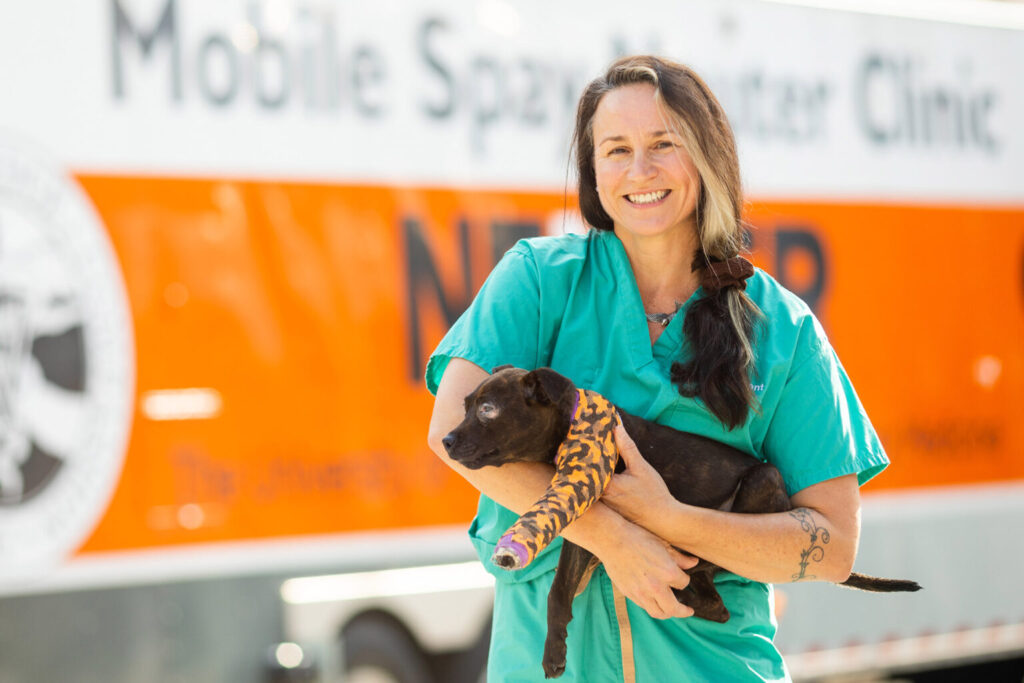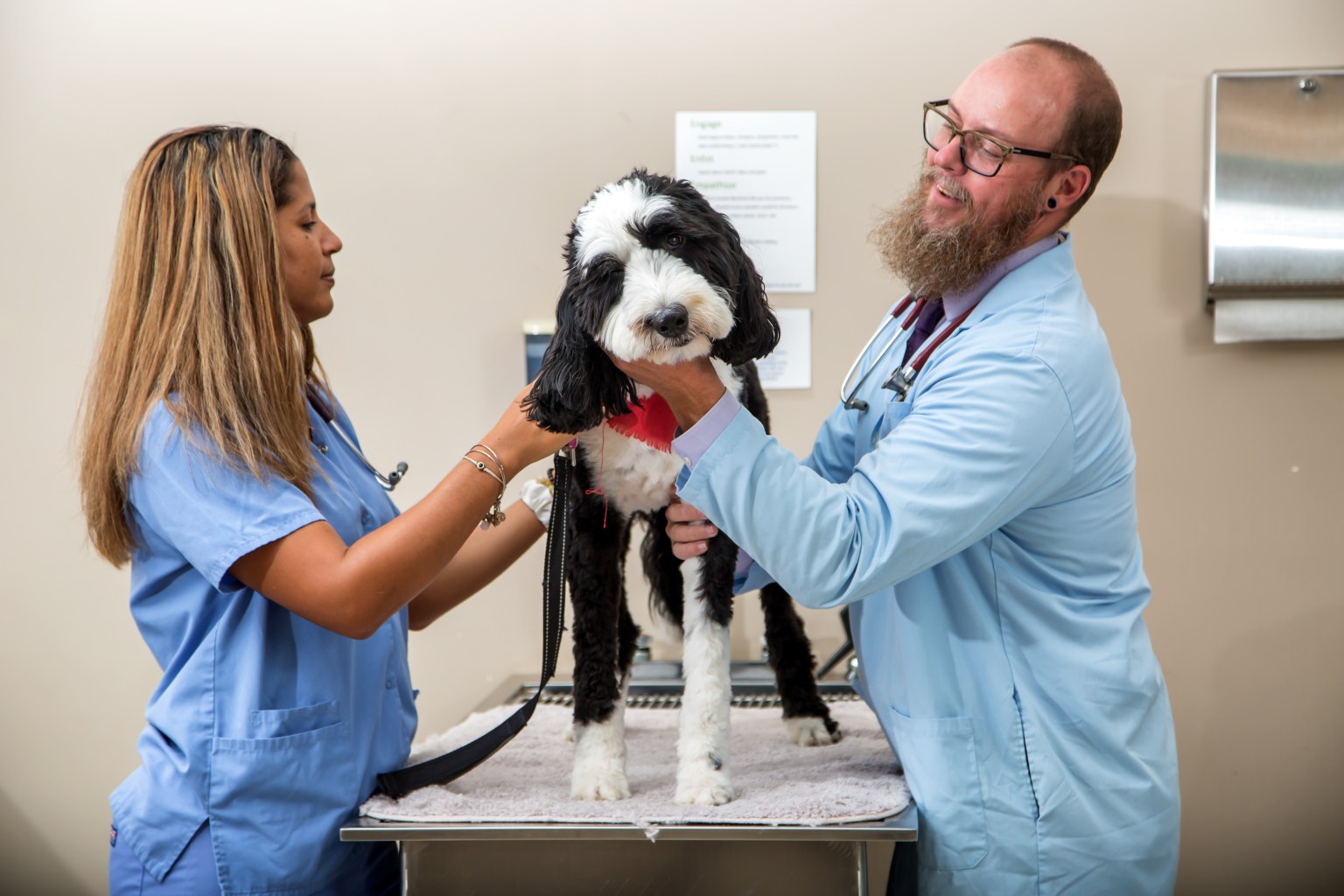Just How a Veterinary Oncologist Can Help Improve Your Pet's Lifestyle
Vet oncologists focus on the medical diagnosis and therapy of cancer cells in pets, playing an important function in boosting their lifestyle. They produce individualized therapy plans that resolve the unique requirements of each pet. Via innovative diagnostics and targeted treatments, these specialists aim to manage symptoms properly. The trip does not finish there. Checking out the full spectrum of treatment alternatives discloses more about just how these professionals can make a considerable difference.

Understanding the Function of a Veterinary Oncologist

In addition to medical diagnosis, veterinary oncologists establish comprehensive therapy techniques customized to the requirements of each pet dog. These methods might include radiation treatment, radiation therapy, and medical interventions, intended at not just prolonging survival yet likewise boosting the overall top quality of life. They supply palliative treatment, focusing on discomfort monitoring and comfort for family pets encountering terminal diagnoses. By teaming up with animal proprietors, vet oncologists guarantee that animals get one of the most compassionate and efficient care possible throughout their cancer cells trip.
Tailored Treatment Prepare For Your Pet dog
When a pet is identified with cancer cells, creating a tailored treatment plan comes to be important for resolving their special demands and circumstances. A veterinary oncologist thoroughly examines the kind of cancer cells, its phase, and the total health of the pet. This comprehensive evaluation permits the development of a personalized technique that might consist of a mix of radiation, radiation treatment, and surgical treatment treatment.
The oncologist likewise thinks about the animal owner's preferences and lifestyle, making certain that the strategy lines up with their goals for their pet's treatment. Veterinary Cancer Specialist. Treatment plans are not fixed; they are consistently examined and changed based on the pet dog's action and any type of emerging demands. By concentrating on individualized treatment, vet oncologists aim to boost the efficiency of treatments while maintaining the pet's top quality of life. This individualized method cultivates a better understanding of the disease, encouraging pet dog owners to make enlightened decisions concerning their beloved buddies' health and wellness
Taking Care Of Signs And Symptoms and Side Effects
Taking care of the symptoms and side impacts of cancer cells treatment is a crucial part of veterinary oncology. Veterinary oncologists make use of a selection of techniques to relieve discomfort and improve the general health of pets going through therapy. This might include using anti-nausea medicines to battle vomiting and anorexia nervosa, which are typical side results of radiation treatment. Pain management is likewise focused on, usually involving the prescription of analgesics tailored to the animal's certain demands.
In enhancement, oncologists might recommend dietary adjustments, integrating top notch, conveniently absorbable foods to sustain dietary consumption. Monitoring blood work is important to discover any type of negative responses to treatment early, permitting timely interventions. Routine follow-ups allow the veterinary team to assess the pet's response to therapy and make necessary adjustments. Via these thorough approaches, vet oncologists intend to enhance the lifestyle for animals facing cancer therapy obstacles.
Palliative Treatment and Comfort Measures
Palliative treatment plays a critical duty in improving the high quality of life for animals diagnosed with cancer cells, concentrating on comfort and psychological assistance instead of curative therapy. Veterinary oncologists prioritize discomfort administration, guaranteeing that pets experience marginal discomfort during their ailment. This includes the use of anesthetics, anti-nausea medicines, and other treatments tailored to specific requirements.
Along with medicinal treatments, environmental alterations can considerably improve a pet dog's high quality of life. Creating a tranquility, comfortable room with soft bed linen and easy accessibility to food and water can minimize tension. Nutritional assistance is likewise important; oncologists might recommend customized diet plans that accommodate the family pet's preferences and requirements.
Emotional assistance for both the pet and its proprietors is vital. Veterinary oncologists give support on coping approaches, helping family members navigate the emotional obstacles that go along with a cancer medical diagnosis. Ultimately, palliative care purposes to ensure that family pets receive the self-respect and comfort they should have.
Collaborating With Your Routine Vet
Collaboration with a routine vet is essential for enhancing the treatment of pets with cancer, as this collaboration assures an extensive strategy to therapy and lifestyle. The routine vet commonly has a comprehensive understanding of the pet dog's case history, which is essential when formulating a treatment plan. They can efficiently interact with the veterinary oncologist, making sure that all facets of the pet dog's health and wellness are thought about.
This partnership enables worked with treatment, which might consist of routine examinations, checking side results, and readjusting drugs as required. Routine veterinarians can likewise offer emotional support to pet owners, helping them browse the intricacies of cancer cells therapy - Veterinary Oncology Services. By working closely with veterinary oncologists, they can promote a smooth change between different sorts of treatment, guaranteeing that animals receive one of the most reliable therapies while maintaining their convenience and health throughout the process. Together, they boost the general high quality of life for pets encountering cancer cells
Frequently Asked Inquiries

What Sorts of Cancers Do Veterinary Oncologists Usually Deal With in Family Pets?
Vet oncologists normally deal with different cancers cells in family pets, consisting of lymphoma, pole cell growths, osteosarcoma, and soft tissue sarcomas. These specialists employ advanced analysis strategies and therapy alternatives to attend to the certain requirements of each animal.
How Can I Prepare My Animal for a Veterinary Oncology Consultation?
Preparing a pet dog for a directory vet oncology visit involves gathering clinical documents, noting symptoms, and preparing questions. Making certain the pet dog is tranquil and comfortable throughout travel can also Check Out Your URL substantially improve the overall experience and consultation performance.
Exist Any Type Of Alternative Treatments for Animals With Cancer?
Different therapies for pets with cancer cells typically include acupuncture, organic medicine, and nutritional assistance. These approaches might match standard treatments, potentially improving overall health and offering encouraging care throughout the animal's cancer cells journey.
How Commonly Should My Family Pet See the Veterinary Oncologist?
The frequency of visits to a veterinary oncologist typically depends upon the pet's certain problem and treatment strategy. Regular evaluations might be recommended every couple of weeks or months to monitor development and readjust treatments appropriately.
What Prices Are Related To Vet Oncology Providers?
Costs linked with vet oncology services can vary extensively, including preliminary appointments, diagnostic tests, treatment strategies, and ongoing treatment. Pet Cancer Surgery. Family pet proprietors should get ready for potential expenditures that mirror the complexity and duration of the therapy needed
Vet oncologists specialize in the medical diagnosis and therapy of cancer in animals, playing a vital function why not try this out in improving their top quality of life. Several pet owners may not be familiar with the complexities of veterinary oncology, recognizing the duty of a vet oncologist is essential for managing cancer cells in pets. The oncologist also considers the animal owner's preferences and lifestyle, guaranteeing that the plan aligns with their goals for their pet's care. By focusing on customized treatment, vet oncologists intend to improve the efficiency of treatments while maintaining the pet's quality of life. By functioning very closely with vet oncologists, they can assist in a seamless shift in between various types of care, ensuring that pets obtain the most reliable treatments while maintaining their convenience and health throughout the process.